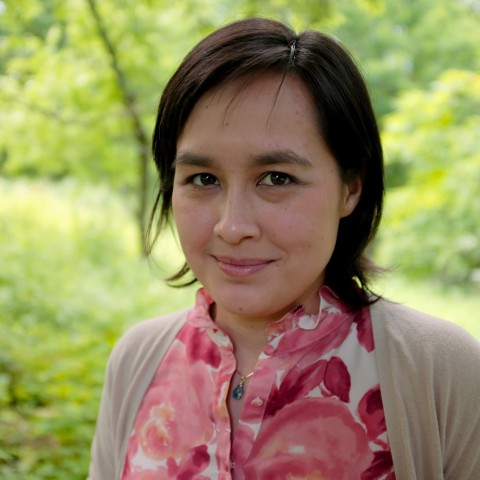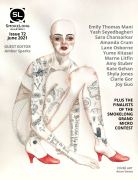For the characters in this story, “… disaster has brought them together in simulated intimacy.” What relevance has this line had for you during the pandemic?
I remember the first time I went out for a run after weeks huddled inside with my roommate. I said hello to every single person I passed on the sidewalk because I was just so happy to see other human beings. And they all said hello back. It made me so happy. I was like a puppy.
Disasters, in my experience, can bring people together like that. I was a freshman in high school a few blocks away from the World Trade Center when the planes hit the towers. I remember in snatches moments from that day: the slick feeling of another girl’s clammy hand in my own clammy hand as we waited to evacuate the school. Walking with a group of students all the way up to midtown past strangers clustered around car radios, waiting for news. For a day, it felt like these were kids I would know for the rest of my life, because of what we went through together. Of course, it didn’t happen that way. Does that make the love you feel for people at the time less real?
Junko can’t venture an opinion about the weather much less make a choice about her fate. Yet she does one day hope to be a musician or painter even as all signs point to imminent doom. What are your own hopes and fears regarding natural and human-caused disasters?
Yes, everyone in the story is pretty complacent about what’s happening to them. I’m afraid I’m not very optimistic. It’s very hard to get everyone rowing in the same direction for a point not yet visible on the horizon. Still, opinions can change very quickly, and it is possible for people to take drastic action in a short period of time. So, I’m not without hope. I don’t think nihilism is ever the answer.
Your bio reads: “I am half-Japanese and half-American and grew up in the space between the two cultures—the same space where my stories reside.” Can you talk about the in-betweenness you feel as a bicultural person and how concepts such as ambiguity and disorientation might drive your writing?
For me, there’s always been self-doubt inherent to growing up “in between.” There’s also a dissonance between feeling one thing and often being perceived as another. When I write, I think that introspection and uncertainty often leak into my characters, no matter the situation. And I can never help poking that tender spot where the protagonist realizes the world may not view her the way she views herself.
You admit to being afraid of the dark. Is fear of the dark what compels you to write unsettling stories like this one? Is it to probe that darkness or to find your way out of it?
It’s definitely the latter. Stories offer a way to be somewhere else, to separate yourself from ordinary terrors. But actually, I have a very low threshold for horror.
I love the line “eternal promise of the future tense.” Did you know immediately that you would use the present tense to tell this story about characters for whom there may not be a future?
Usually, when I use anything besides past tense, it’s deliberate, just because I find it more challenging to do. In this case, you’re right, the idea was to use the present tense to keep the future more uncertain. But otherwise, I mostly clung to my trunk and let the wave just pull me out to sea. It’s fun when you surprise yourself.
What are your goals as a writer?
I write to be understood and I read to understand. I leave bits of myself like breadcrumbs in my characters, and I hope people find them and are like, “Ah! Yes, I have felt the same way. I know what you mean.” But I think having fun and stretching your imagination are valid goals too. Isn’t it satisfying to construct another place in your head, brick by brick? I’m working on a novel right now. My current goal is just to get that in shape to go on submission.
Are there any writers that have influenced your style?
I read a lot of different things: history, science, science fiction, fantasy, non-speculative fiction. All of it trickles into what I write. My favorite authors are Banana Yoshimoto and Kazuo Ishiguro, who is a deft blurer of genre lines. They both handle their characters with a gentleness I admire. They forgive their characters rather than drag you through six hundred pages about how terrible and gross and hopeless everyone is. I love Virginia Woolf and Marilynne Robinson for the same reason. I guess you see a theme. I like nine-tenths of the people I meet. Also, I will read anything by Nnedi Okorafor; she knocks me out every time.



 The core workshop of SmokeLong Fitness is all in writing, so you can take part from anywhere at anytime. We are excited about creating a supportive, consistent and structured environment for flash writers to work on their craft in a community. We are thrilled and proud to say that our workshop participants have won, placed, or been listed in every major flash competition. Community works.
The core workshop of SmokeLong Fitness is all in writing, so you can take part from anywhere at anytime. We are excited about creating a supportive, consistent and structured environment for flash writers to work on their craft in a community. We are thrilled and proud to say that our workshop participants have won, placed, or been listed in every major flash competition. Community works.